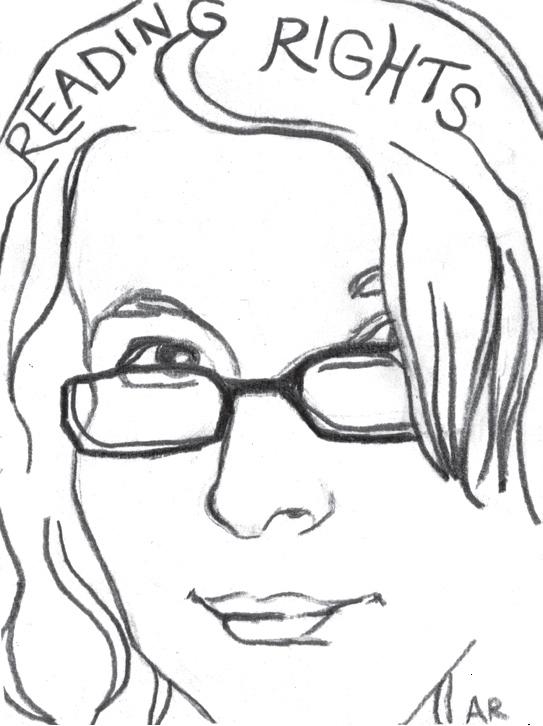
(Drawing by Annie Raccuglia)
The difference between irony and satire — according to dictionary.com — is negligible. One is essentially a vehicle for the other, but I can’t quite figure out how that works. I thought I would try to figure out the divide by reading and reviewing Gary Shteyngart’s newest novel, “Super Sad True Love Story,” but I realized that there was something more interesting associated with the book: its trailer.
The trailer for the book consists of interviews with authors and Shteyngart’s students — including James Franco — who refer to him as both wonderfully talented and illiterate. This, I think, is irony because an author should be able to read. But I’m almost positive that the trailer itself is not satirizing the current state of writing by suggesting that many authors are not really reading.
With over 120,000 views on YouTube, I would call this trailer a success, and even though I was already planning on reading the book, it certainly cemented my appreciation for Shteyngart, who clearly isn’t taking the claims that he is America’s next great satirist too seriously.
And the idea of a book trailer, while not new, does indicate that the publishers responsible for this particular trailer are interested in advertising literary entertainment in the same way that visual entertainment is advertised.
Trailers such as this one can become very small-scale hits on YouTube, but until the publishing industry has money, we can’t expect book trailers to appear on TV alongside the trailer for the new Adam Sandler movie and before the new episode of “Two and a Half Men.” That’s a show, incidentally, with 146 million viewers weekly.
Maybe it’s the form of the advertisement itself that houses the satire. Maybe we should marvel at the impossibility of a successful book trailer actually making an impact on book sales. Of course, no satire has to exist here, but I did a quick search for book trailers, and most of what I found is serious, presenting a story without frills and telling us nothing about the author or a writing process.
In the “Super Sad True Love Story” trailer, Shteyngart plays with his dachshund and asks who Chekhov is, which suggests to me that something must be getting made fun of. And whatever it is, I’m on board because people often think of literary fiction as staid — read in that grating poetry voice that doesn’t pay attention to its own punctuation marks. It works for some people, but clearly it is not marketable in the same way as something with of a voice of its own.
This argument exists for film, too. The blockbusters have to get made in order for that money to support the little guys. In a perfect world, the distinction wouldn’t exist, and in another perfect world, money would actually get diverted to smaller projects. The only reason many people went to see “Grown Ups” was that they saw a trailer, and that movie grossed over $160 million.
So far, I like Shteyngart’s novel, and I doubt it has sold enough copies to gross that much money. Maybe if we focus on getting books into people’s hands much like we focus on getting those same people into theater seats, the publishing industry will boom once again.
